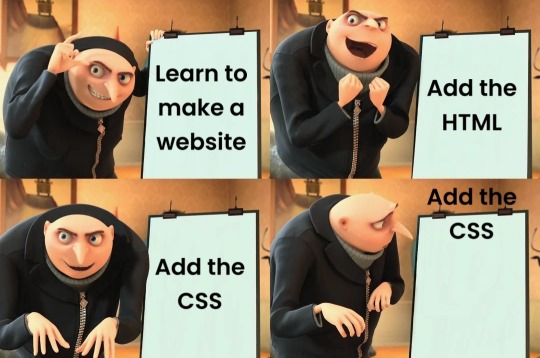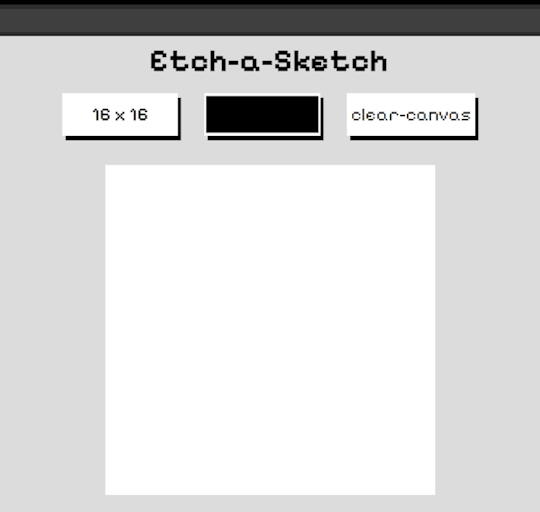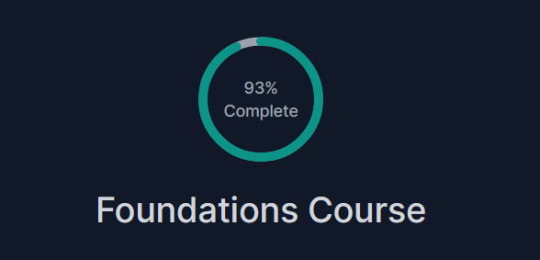#software computer development
Explore tagged Tumblr posts
Text

#programmer humor#programming#geek#nerd#programmer#technology#computer#phone#mac#windows#os#operating system#website#web development#dev#developer#development#full stack developer#frontend#backend#software#hardware#html#css#meme#despicable me#gru#joke#software engineer#apple
474 notes
·
View notes
Text
start them young

373 notes
·
View notes
Text


Devs (2020)
#devs#scifi#movies#office#computers#tech#monitors#cyberpunk aesthetic#programming#coding#software engineering#3d animation#motion graphics#graphics design#developers & startups#stephen mckinley henderson#alison pill#alex garland#cailee spaeny
114 notes
·
View notes
Text
the current landscape of webdev needs to know that I don't need web applications that scale up to millions of users, I need web applications that scale down to 5 users or less
208 notes
·
View notes
Text

November 1, 2001. Oulu, Finland. Agfa ePhoto CL18.
This was my workstation at the software development job I had at the time. As you can tell from the amount of caffeine implied. This office was at Technopolis in Linnanmaa. The company isn't there any more. It's nowhere.
#photo#my photos#photoblog#oulu#finland#energy drink#software development#coca cola#computers#programming
66 notes
·
View notes
Text

i got an old laptop from my grandpa and was googling about it, and the wikipedia page for the micro-soft acer aspire has an image of the acer aspire with the wikipedia page, containing the image of the acer aspire with the wikipedia page, containing the image of the acer aspire with the wikipedia page, containing the image of the acer aspire with the wikipedia page, containing the image of the acer aspire with the wikipedia page, containing the image of the acer aspire with the wikipedia page, containing the image of the acer aspire with the wikipedia page....
#programming#game development#coding#codeblr#codex#developers#software engineering#code#old web#old internet#old computers#computing#computer science#computer#antique#fandom wiki#wikipedia
185 notes
·
View notes
Text
I swear that half of programming is staring at your screen going "how do I do this" and the other half is figuring out why something doesn't work and being like, "oh duh I'm just fucking stupid"
97 notes
·
View notes
Text


"He is back and he is seeking revenge!!" That’s what one of my teammates said after we wrapped up a big performance upgrade on a server that was… let’s say, not performing its best. Highs and lows, right? Complex, data-heavy, fast, reliable, and done for the best 'top dogs' in the game (me included).
And then another kind of thing... I was talking with a friend who’s been struggling to find a job in his field (he's studying management, which is a solid and common path). So, why not help a little bit? (That is what is in the image, do not call me a click baiter*)
I strongly believe that if you're struggling to get into any area, a nice way to present yourself is by having a page—it can be pure HTML/CSS or a cloned repo with some kind of "personal website template" using all the NodeJS you want.
Then, turn it into a DNS like "yourname-myprofession.com" so you can show a clean, well-designed QR Code with your avatar during interviews. It’s a cleanest way possible to present your résumé and experience. Tech skills are like magic, especially for those who haven't seen it before.
#study aesthetic#study blog#coding#programmer#programming#software development#developer#software#student#study space#study art#study motivation#study#studyblr#studyblr europe#studyblr community#study inspiration#studying#studyspo#linux#linuxposting#arch linux#open source#computers#github#softwareengineering#software engineer#software engineering#information technology#study life
21 notes
·
View notes
Text
/* Filename: Discipline.scala */ for (i <- 1 to 1000) { println( f"$i%4d: I will not use code to cheat." ); } // >:3
#computer programming#open source software#software#computer science#development#free software#software development#software developers#programming#scala#scala programming
50 notes
·
View notes
Note
hi wait did I read your tags right, you made your own version of a soundgasm website?
kinda? i mean it's not "my own version of soundgasm" because it's just my personal site (so like you can't make an account and upload stuff there) but yeah, go check out https://listen.rosepetalkitty.cc, i made it all myself from scratch because i wanted to be able to have more control over the backend and the ui.
plus it lets me edit my descriptions and tags, replace audio files if i fuck something up, and add extra stuff that soundgasm doesn't have, like collections/series, automatic messages on discord when i post new audios, maybe in the future a way to have a play queue, possibly a "variants" feature for different versions of the same audio, better metrics (instead of just "how many clicks has this audio gotten since i posted it" i can see stuff like "during which hours do i get the most traffic", "how many clicks has this audio gotten this week", etc.). and also it's in my color scheme. so uh. yeahg. maybe it's more accurate to describe it as my equivalent to Shibby's "Shibbydex" or Miss Lilith's "Lilith Unleashed".
oh and btw, for my petals who aren't already aware, im no longer posting my audios on soundgasm for obvious reasons (my own site is just way way better for me to work with and as far as im aware its better for my listeners too) so if you're looking for my files in the future please go there. all the old ones from sg are on my new site, but im not going to delete them from sg, im just not going to post new things there.
#rosie rambles#programmer brain#born to be a bimbo forced to learn software development#and to study computer infrastructure#agh. a cruel world indeed.
13 notes
·
View notes
Text
Modern software development be like: I wrote 10 lines of code to call an API that calls another API, which calls yet another API that finally turns on a lightbulb. Pray that Cloudflare or AWS will not be down during this operation; otherwise, there will be no light for you.
119 notes
·
View notes
Text

Emma Haruka Iwao
Gender: Female
Sexuality: Queer
DOB: Born 1984
Ethnicity: Japanese
Occupation: Computer scientist
Note: In 2019 Haruka Iwao calculated the then world record for most accurate value of pi. Record was surpassed in 2020. She reclaimed the record in 2022 with 100 trillion digits
#Emma Haruka Iwao#qpoc#queerness#lgbt#lgbtq#female#queer#1984#japanese#asian#poc#computer scientist#scientist#entrepreneur#software developer
101 notes
·
View notes
Text
100 days of code - day 16
31.10.23 again ?
Hello! 😊
Today I did a project with HTML, JS and CSS. It is like a pixel art canvas, you can pick a color and draw some pixels.
I'm impressed with the reduction of time that I made the project, if compared with yesterday project I was I little faster today :)
I struggled a little when trying to make the dynamic size for the canvas and the click + holding event to draw the line, but after a lot of googling I managed to do it.

This project was so fun to make. I always got excited when saw it slowly taking form.
I also added some cool buttons style:

Now I have only one project left to finish the foundation path!

That's it, I also made some rust exercises on rustlings, but not too much.
Now I'm going to 🛌😴😴😪

#day 16#100 days of code#100daysofcode#codeblr#programming#progblr#studyblr#computer science#Rust#1000 hours#code#100 days of productivity#100 days of studying#software development#100 days challenge#tech#javascript#html css#coding
144 notes
·
View notes
Text
pro tip for programmers - how to alias
hey, so you know that annoying thing that happens when you're coding, and you need to run/test the same program 100 times in a row, so you end up typing "python3 testScriptWithASuperLongName.py" into the terminal about 80,000 times?
well, there's a better way! it's called aliasing :D
in your bash shell (or zsh, or whatever shell you use, but bash is the default on VSCode and most people on tumblr use VSCode, so I'm using bash as the default to explain this concept) you can set an alias, essentially a shortcut command, that runs longer commands.
(yes you can just use the up arrow key to re-run the same command, but sometimes you're typing other things into the terminal too and you don't feel like hitting the up arrow key four times in a row, and also this is just a cool and useful tip to get comfortable with aliasing so shhhh)
so, in your terminal shell, just type this:
alias run="python3 testScriptWithASuperLongName.py"
now, you can run that entire super long command, just by typing the word "run" into your terminal. Here's a screenshot of an example on my computer to make it make more sense:

in this example, i just created a simple python file that contains one line of code: print("it works!")
then, as you can see, by setting the alias to run, i can now run that file, runningatestscript.py, simply with the command 'run'.
the best part is, this alias is temporary - it only lasts as long as your shell session is open. so once you close the terminal, the run alias is cleared and you can set it again next time to any file or task you're currently working on, to save yourself a lot of typing, typos, and time.
so if you want to, you can get in the habit of always setting a run alias in the VSCode terminal for whichever file you're working with as soon as you get everything open. that way, when you need to run the same file 50 million times, you have a super easy way of doing it! you can even set it to a single letter if you want to go for maximum speed, but i prefer to use whole short words, because they're easy for me to remember.
note: if you do want to set an alias to work for all sessions, you can simply add it to your ./bashrc file. this is a common way to automate repeatable tasks, and simply to set easier-to-remember commands for terminal commands that are really complicated/confusing/hard to remember.
for example, i saved the alias checkboot="[ -d /sys/firmware/efi ] && echo 'UEFI mode' || 'BIOS mode'" into my zshrc file (zsh equivalent of bashrc file). this way, no matter how many times i rebooted my machine, i would always be able to quickly check which boot mode was running by simply typing 'checkboot'.
yesterday i was updating my boot mode from BIOS to UEFI on my very old machine that is technically compatible with UEFI, but not configured for it by default. So it was extremely helpful and saved me the time and headache of having to remember and type that long-ass command a thousand times in between many different reboots and new shells.
if you have any tasks like that, or terminal commands that you know would be useful to you, but you can never remember them when you need them, i highly recommend getting comfortable with aliasing! it can be super useful to simply set custom aliases for all the commands you don't want to remember, so that you can automate things away and not have to worry about so much linux syntax all the time when you're tring to focus on programming.
i know this may seem like a simple tip to some, but i only learned about it recently and it's been extremely helpful to integrate into my workflow and customize my OS with! so i thought it might be worthwhile to some people if i share :) hope it helps!
#codeblr#linux#hacker#compsci#hack the planet#hacking#studyblr#coding#progblr#programmer#programming#women in tech#women in stem#women in computing#women in cs#comp sci#coding tips#programming tips#software development#software developers#vscode
114 notes
·
View notes
Text
The story of BASIC’s development began in 1963, when Kemeny and Kurtz, both mathematics professors at Dartmouth, recognized the need for a programming language that could be used by non-technical students. At the time, most programming languages were complex and required a strong background in mathematics and computer science. Kemeny and Kurtz wanted to create a language that would allow students from all disciplines to use computers, regardless of their technical expertise.
The development of BASIC was a collaborative effort between Kemeny, Kurtz, and a team of students, including Mary Kenneth Keller, John McGeachie, and others. The team worked tirelessly to design a language that was easy to learn and use, with a syntax that was simple and intuitive. They drew inspiration from existing programming languages, such as ALGOL and FORTRAN, but also introduced many innovative features that would become hallmarks of the BASIC language.
One of the key innovations of BASIC was its use of simple, English-like commands. Unlike other programming languages, which required users to learn complex syntax and notation, BASIC used commands such as “PRINT” and “INPUT” that were easy to understand and remember. This made it possible for non-technical users to write programs and interact with the computer, without needing to have a deep understanding of computer science.
BASIC was first implemented on the Dartmouth Time-Sharing System, a pioneering computer system that allowed multiple users to interact with the computer simultaneously. The Time-Sharing System was a major innovation in itself, as it allowed users to share the computer’s resources and work on their own projects independently. With BASIC, users could write programs, run simulations, and analyze data, all from the comfort of their own terminals.
The impact of BASIC was immediate and profound. The language quickly gained popularity, not just at Dartmouth, but also at other universities and institutions around the world. It became the language of choice for many introductory programming courses, and its simplicity and ease of use made it an ideal language for beginners. As the personal computer revolution took hold in the 1970s and 1980s, BASIC became the language of choice for many hobbyists and enthusiasts, who used it to write games, utilities, and other applications.
Today, BASIC remains a popular language, with many variants and implementations available. While it may not be as widely used as it once was, its influence can still be seen in many modern programming languages, including Visual Basic, Python, and JavaScript. The development of BASIC was a major milestone in the history of computer science, as it democratized computing and made it accessible to a wider range of people.
The Birth of BASIC (Dartmouth College, August 2014)
youtube
Friday, April 25, 2025
#basic programming language#computer science#dartmouth college#programming history#software development#technology#ai assisted writing#Youtube
7 notes
·
View notes
Text
in a lot of ways i feel like i should have gotten a different degree because i feel as an adult my interests are much more creatively driven. but the culture insists that you decide your fate at age 17-19 and then have to stick with it for the rest of your life
#i have a software engineering degree#i was going to actually go for game development but my mom convinced me to go broader bc she thought i could get pigeonholed and not find a#job. and i mean she’s probably right. and the game dev industry is Terrible#but i actually would have in retrospect gone for a third option. something either heavily database related OR#something that has nothing to do with computers at all. like a degree that would get me a job at a zoo or aquarium#i feel like i’d get more fulfillment out of that. but perhaps i am just feeling meh because i feel like#so behind on knowledge in tech compared to my coworkers because i don’t really have any outside of work interest in doing this kind of thing#for the most part. like maybe if i worked less than 40 hours a week i would#but i already spend so much time sitting at my desk that it’s like the last thing i want to do when i am off work#i much rather spend time with my gf and my dog. go on walks. do crafts.#but it feels sometimes like in tech you have to be obsessed with it and do it 24/7. like the culture is so. This Is Your Life#but to me it is Just A Job. and i feel like you’re kind of punished for that in this industry
6 notes
·
View notes